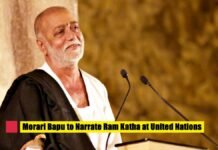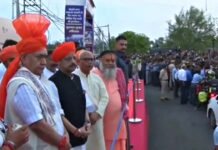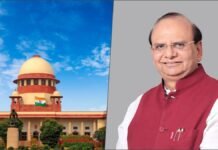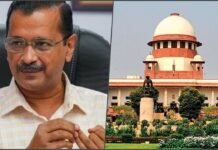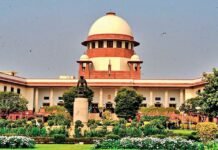
New Delhi: The Supreme Court on Thursday delivered a split verdict on petitions challenging the Karnataka High Court order refusing to lift the ban on wearing hijab in educational institutions in Karnataka and referred the sensitive matter to the Chief Justice for A larger bench can be formed.
Justice Hemant Gupta dismissed the petitions against the high court’s decision, while Justice Sudhanshu Dhulia accepted them and said it was ultimately “a matter of choice”. The High Court had refused to lift the ban, saying wearing the hijab was not a part of a “compulsory religious practice” in Islam. Justice Gupta, heading the bench, while pronouncing the verdict on a group of 26 petitions, said at the outset, “There are different views on this matter.”
He said that he has framed 11 questions in this judgment and their answers are against the petitioners. This list includes questions regarding the scope and scope of the right to religious freedom and the right to compulsory religious practices. The bench, in view of the fractured judgment, directed that these petitions challenging the High Court’s decision be placed before the Chief Justice for the constitution of an appropriate larger bench.
Delivering his judgment, Justice Dhulia said the Karnataka High Court had taken the “wrong course”. He said, “My decision has mainly been emphasized that in my opinion, this whole concept of compulsory religious practices was not necessary to settle the dispute. The court probably took the wrong path in this context. It was mainly a question of Article 19(1)(a), its implementation, and mainly Article 25(1). It is ultimately a matter of choice, nothing more or less.”
Justice Dhulia said that while deciding the matter, he had in mind the education of girls. “It is a known fact that girls in rural areas and semi-urban areas already have to face many difficulties,” he said. “So are we making their lives better, this question was also on my mind,” he said. Justice Gupta, while delivering his judgment, said that he has framed 11 questions in his judgment. He read out these questions. These included questions as to what is the scope of the right to freedom of conscience and religion under Article 25 and the right to religious practices as required under Article 25 of the Constitution.

Reading out the question, Justice Gupta said, “Whether the fundamental right to freedom of expression under Article 19(1)(a) and the right to privacy under Article 21 are mutually exclusive or are they complementary to each other.” He said another question has been raised in his decision whether wearing a hijab is considered a compulsory religious practice and whether girl students can demand the right to wear a hijab in school. Justice Gupta said, “According to me, the answers to all these questions are against the petitioners. I propose to dismiss the petitions.”
Justice Dhulia said that he has set aside the state government’s order dated February 5, 2022, which banned the wearing of clothes that disturbed equality, integrity, and public order in schools and colleges. “In view of the differing views of the Bench, the matter may be placed before the Chief Justice for constitution of an appropriate Bench,” the bench said.
The Karnataka High Court on March 15 dismissed petitions by a section of Muslim girl students of the Government Pre-University Girls’ College in Udupi in the state seeking permission to wear the hijab inside classrooms. The High Court had said that wearing the hijab is not a part of the compulsory religious practice in Islam. After 10 days of debate in the Supreme Court, the apex court had on September 22 reserved its verdict in the matter.



